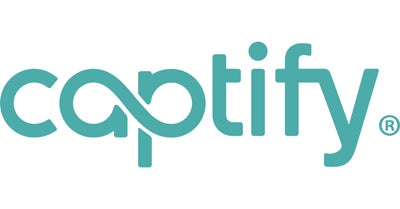“On TV & Video” is a column exploring opportunities and challenges in advanced TV and video.
Today’s column is by Matt Papa, SVP of business and corporate development at Captify.
Global brands have always used M&A as a not-so-secret way to remain competitive.
The Walt Disney Company acquired 21st Century Fox’s entertainment assets before launching their streaming service Disney+. AT&T acquired Time Warner’s media brands (Warner Bros., Turner Television, HBO and CNN) before offloading everything to Discovery.
But this industry-shaking consolidation doesn’t end there.
The emergence of the streaming era has led to a transformative shift in media and entertainment. Amazon recently spent $8.5 billion to acquire MGM’s vast movie library, some of which is available on its ad-supported Freevee service.
Comcast, Fox and Paramount have seen a similar market opportunity, acquiring ad-supported channels like Xumo, Tubi and Pluto, respectively. Roku is bidding for a stake in linear channel Starz after striking a multiyear theatrical output deal with its owner Lionsgate. ViacomCBS also rebranded and moved its content to Paramount and Warner Bros. Discovery intends to merge its streaming apps into a single destination bundle.
As streaming continues to grow and this M&A activity continues, these platforms are about to look vastly different, giving rise to new monetization models and measurement tactics.
Marketers should be ready to take advantage.
The new streaming audience tier
It’s becoming clear that streaming subscriptions alone aren’t a completely sustainable business model. The once-untouchable streaming titan Netflix recently announced subscriber loss for the first time in a decade. It prompted Reed Hastings, Netflix’s co-chief executive, to admit a lower-priced, ad-supported tier was coming despite his vehement stance against it several years ago.
As for marketers, there’s never been a better time to find unified scales to meet consumers in their preferred ad-supported channels. Data now shows nearly half of US consumers say they have reached a saturation point for premium-priced streaming services. Ad-supported models will allow streamers to monetize a new, more cost-conscious audience tier that is no longer willing to pay steep monthly or annual prices.
Better targeting and measurement are new marketing currencies
Streamed entertainment needs increasing consumer activity to generate data and drive growth. The disruption of once-held streaming norms is an opportunity for incumbent media brands to create interoperability of identity across not only their suite of services but also across the streaming and addressable linear market. So those streamers are focusing more on advanced analytics and tech platforms – like OpenAP, Ampersand and Blockgraph – to ensure better-targeted ads and actionable insights that boost acquisition rates.
Addressability will also lend itself to both linear and digital measurement. Platforms like iSpot, Comscore, VideoAmp and Nielsen 2.0, as well as incrementality partners like EDO, HyphaMetrics and others, are going to create more transparent and honest solutions for marketers and media brands.
They will have to transform the way they build and activate broadcast strategies and refine streaming strategies. This will not only allow marketers to adopt a more sophisticated media buying approach across shows, screens and audiences; it will empower media streaming giants to deliver a premium viewing and advertising experience to consumers.
The onset of necessary disruption
By collaborating on multiple measurement solutions, media brands and advertisers will have greater control over technology’s role in the streaming landscape. At the same time, they will also invite more niche and specialized partners to contribute as opposed to working within the rails built by a select few. This will ultimately promote marketing innovation and growth through welcomed disruption. But only if marketers can take advantage of interoperability opportunities following the flurry of M&A streaming activity.
Follow Captify (@Captify) and AdExchanger (@adexchanger) on Twitter.














